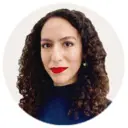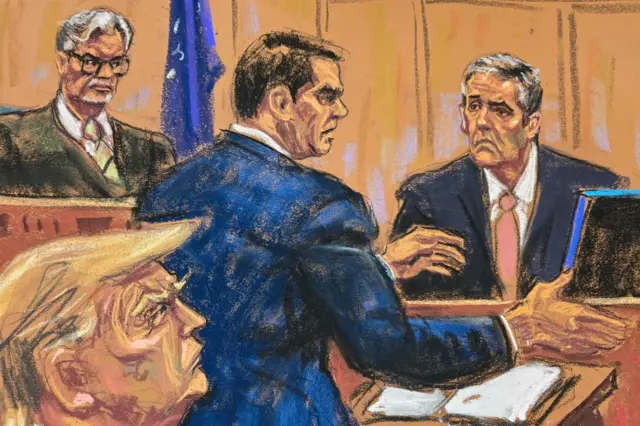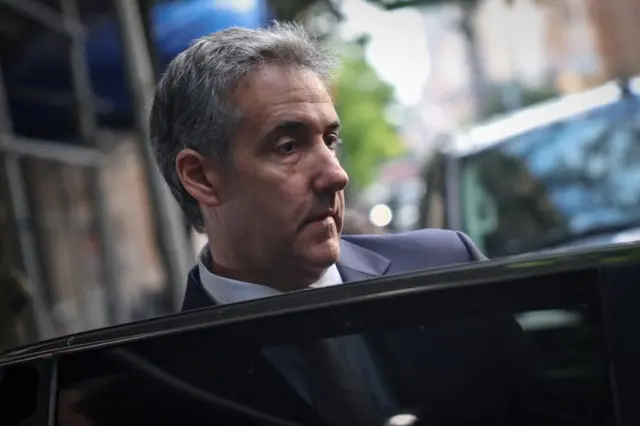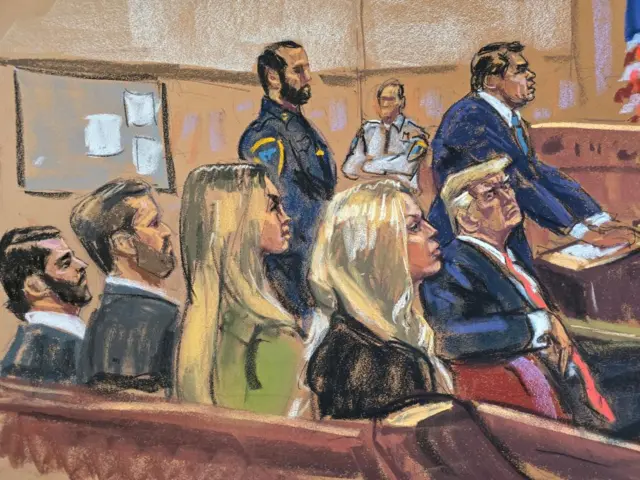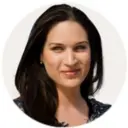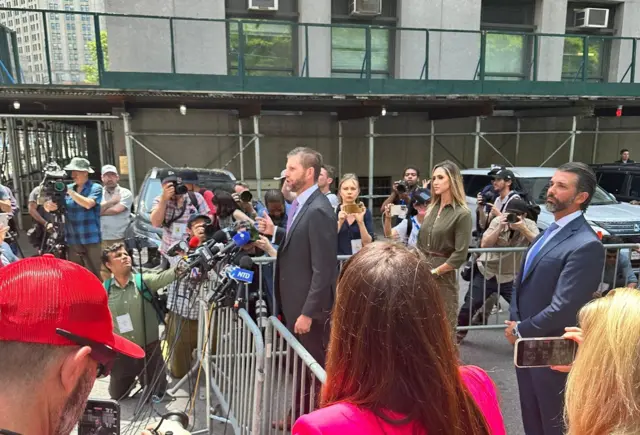Tabloid editor and lawyer joked about getting government jobspublished at 20:32 BST 28 May 2024
Kayla Epstein & Madeline Halpert
Reporting from court
We're revisiting one of the more humorous exchanges from the trial.
In a series of text messages, National Enquirer editor Dylan Howard and Karen McDougal's then-lawyer Keith Davidson joked about getting ambassadorships after the election, as they brokered a deal for the tabloid to catch-and-kill the Playboy model's story.
The jokes show the two men are helping Trump get elected, Steinglass claims.
"They're doing it by squashing the Karen McDougal story."
As Steinglass walks the jury through a very long series of events, he uses text messages, phone calls and records displayed on the screen to support his argument.
We've seen these types of documents before, but Steinglass is trying to remind jurors one final time of all the evidence they seen.

